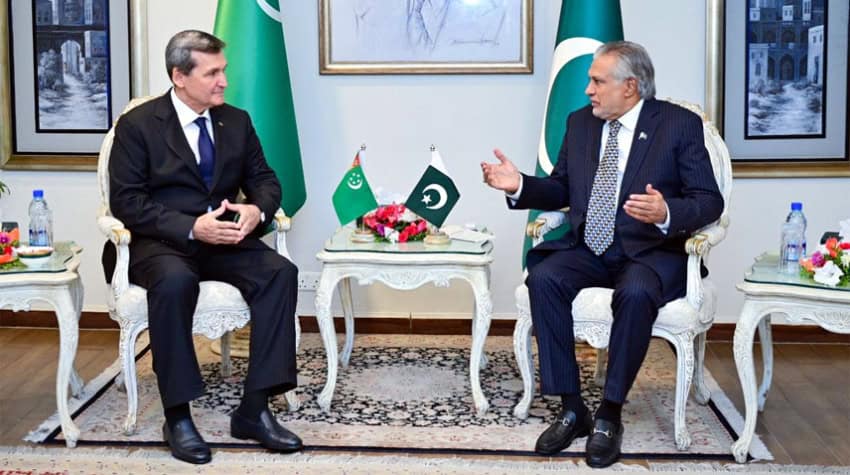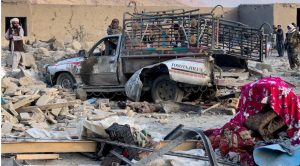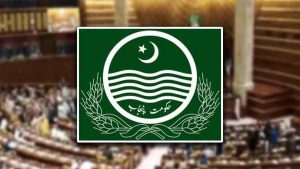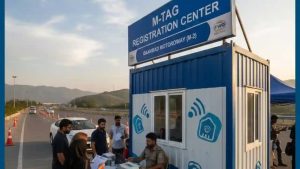Deputy Prime Minister Ishaq Dar announced on Tuesday that Pakistan and Turkmenistan have agreed to expand bilateral investment in energy, connectivity, and information technology (IT), while also seeking the early finalization of a transit trade agreement and the establishment of a liberal visa regime.
Turkmenistan’s Foreign Minister Rasit Meredow is currently visiting Islamabad with his delegation for three days, during which he held extensive discussions with Dar, who also oversees Pakistan’s external affairs. The two leaders led their delegations in the third round of bilateral political consultations, focusing on various global and regional developments.
There has been a recent surge in visits, investment talks, and economic activity between Pakistan and Central Asian states, including meetings between top Pakistani officials and leaders from Uzbekistan and Azerbaijan. Central Asian countries, located in a landlocked but resource-rich region, need better access to regional markets such as Pakistan, China, India, and West Asia. Meanwhile, Islamabad is seeking to bolster trade and investment ties with allies to stabilize its fragile $350 billion economy, which faces an acute balance of payment crisis amid soaring inflation and rising external debt.
“We have agreed to intensify our joint efforts to further expand and deepen bilateral investment, especially in energy, connectivity, and information technology,” Dar said during a joint news conference with Meredow after the talks at the foreign office in Islamabad.
“We agreed to work together on trade diversification, early finalization of the transit trade agreement, and instituting a liberal visa policy to facilitate greater contacts between businessmen of the two countries,” he continued. Both sides reiterated their commitment to enhancing the volume of bilateral trade and making it commensurate with the true potential of their existing ties.
According to the foreign office, Pakistan’s bilateral trade with Turkmenistan stands at $8.41 million, with Pakistan exporting $2.234 million and importing $6.17 million. Dar invited Turkmen companies to benefit from the investment environment created by the Special Investment Facilitation Council (SIFC) and the regional connectivity opportunities provided by Pakistan’s southern port cities of Gwadar and Karachi.
Last year, Pakistan established the SIFC, a civil-military hybrid body designed to oversee foreign financing, to help overcome its prolonged economic turmoil that has forced successive administrations to seek financial assistance from global lenders and close allies.
Pakistan has recently offered Central Asian states to become part of the China-Pakistan Economic Corridor (CPEC) project, under which Beijing has pledged around $65 billion in energy, infrastructure, and other projects in Pakistan. Islamabad believes the corridor presents a strategic opportunity for Central Asian states to transport their goods with greater ease to regional and global markets.
Dar also emphasized the importance of the Turkmenistan-Afghanistan-Pakistan-India (TAPI) gas pipeline and electricity transmission line, saying, “These projects offer enormous opportunities for our region and our two countries.” The pipeline will link the energy-rich Central Asian country of Turkmenistan through Afghanistan to Pakistan and India, supplying nearly 33 billion cubic meters (bcm) of natural gas each year along a route stretching about 1,800 kilometers from Galkynysh, the world’s second-biggest gas field, to the Indian city of Fazilka near the Pakistan border. Work on the project has been stalled due to differences over price review and delivery points.
Meredow endorsed Dar’s emphasis on the mega projects, stating that both sides agreed to make joint efforts to implement these large-scale initiatives, which are the cornerstone of Turkmen-Pakistani trade and economic cooperation. “Our discussions reaffirmed our shared commitment and unwavering resolve to collaborate on the practical implementation of these initiatives,” he said, adding that transport emerged as another key area for enhanced Turkmen-Pakistani cooperation.
“Leveraging our respective strengths, we can jointly develop modern infrastructure along east-west and north-south corridors,” he continued. “In this context, we agreed to maintain an active dialogue on creating international transport rules that capitalize on the transit potential of both Turkmenistan and Pakistan.”
Addressing the media, Meredow said both sides engaged in detailed discussions on fostering closer ties in the fields of science, education, and culture. “Our collaboration with Pakistan is firmly set on a future-oriented cause with steady growth envisioned across all dimensions,” he added.














